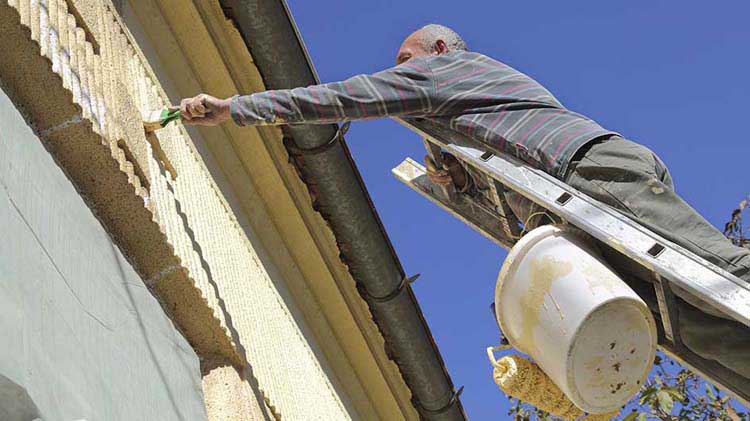What to know before you buy that fixer-upper
Will this handyman's special be worth the effort? Here are some aspects to consider before a home purchase.
The idea of buying an older property and renovating it into your dream home or a moneymaker is appealing to many people. But with that excitement also comes a lot of potential problems.
It's important that you know what you're getting yourself into. Before taking on a fixer-upper, consider if it's the right type of property for you and what it will actually take to renovate.
Decide what's right for you
- Pros and cons. While a lower sales price, potential for resale profit, and a sense of personal satisfaction are certainly possible, there can also be a lot of unseen costs associated with buying a home that needs repair.
- Patience is required. Depending on the size of the renovation, a fixer-upper can take anywhere from a month to more than a year to complete. Be aware that you and your family's lives may be disrupted by the renovation which may take a significant amount of time. If this doesn't work for your lifestyle, it's best to think about a different type of property.
- Money. Renovations can be very costly. If you won't have much money left over for renovations after your down payment and closing costs, you may want to consider a house you can live in while it's being fixed up. Whatever you decide, remember that there will be extra expenses no matter how carefully you plan.
What to consider when looking
- Location, location, location. It's the golden rule of real estate and also applies to fixer-uppers. Do your research. Check average home prices and schools in the area. Take a stroll around the neighborhood to see if the homes are well maintained. Buying the worst house on the best block that you can afford can be a great option.
- Condition. This can vary widely from a house requiring cosmetic repairs to a total gut rehab. If you want to minimize renovation costs, look for a home that has "good bones" — a solid roof and foundation, natural light, good floor plan, quality construction, and a coherent design.
- Layout. Many older homes are chopped up into several rooms and their layout may not work for you. While it's certainly possible to knock down walls and rearrange the floor plan, it can sometimes be expensive or impractical. Keep this in mind when thinking about your renovation budget.
- Configuration. Search for houses that have the approximate square feet and number of bedrooms and bathrooms you desire. While it is possible to add these things when renovating, they can really add up, especially if you expand the footprint of a house.
Repairs and remodeling
- Budgeting. A reputable contractor can also assist in the process.
- Minor renovations. Add up how many will be needed. These can include:
- Patching and painting walls,
- Refinishing floors,
- Laying tile or carpet,
- Installing light fixtures and switches,
- Fixing broken windows,
- Installing new or refacing existing kitchen cabinets,
- Replacing doors,
- Painting the exterior and
- Adding a deck.
- Major renovations. Tally up how many of these will be necessary. These can include:
- Replacing HVAC systems or adding central air,
- Fixing foundations,
- Replacing the roof,
- Installing new plumbing, sewer lines, or wiring,
- Replacement windows,
- Kitchen and bath remodels and
- Building garages and additions.
Financing
Federal Housing Administration offers a 203k loan that allows borrowers to purchase a property while also financing the cost of rehabilitation.
Don't over-improve
Consider how adjacent houses have been finished. If most have lower-end finishings, it's probably not best to spend your money on granite countertops, copper bathroom fixtures and marble floors. Your fixer-upper should be in line with — or just slightly above — the standards of homes in your neighborhood.
Purchasing a home is probably one of the biggest decisions you'll ever make. And while it may seem overwhelming, a fixer-upper can be a great way to get good value for your money. Do your homework, talk to professionals you trust, and make a smart, informed decision.




